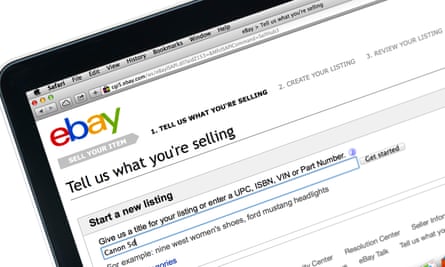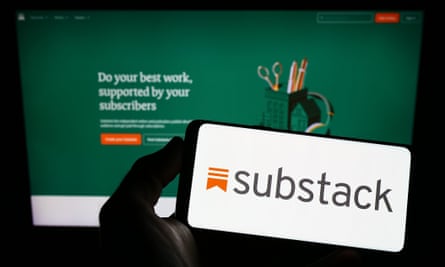The Consumer Electronics Show (CES), which starts today in Las Vegas, is an odd beast. It is the biggest technology event of the year, a sprawling conference that spills over multiple casinos and convention centres to dominate a city that is hard to overshadow.
But for the better part of a decade it has been an afterthought for some of the world’s biggest businesses, led by Apple realising that if you can get the press to come to you, you don’t need to risk burying your product launches under hundreds of competing newslines. The result is that CES is no longer where you see the future, but where you learn how that future will get copied into a thousand cheap plastic knockoffs.
There are, of course, exceptions. The TV industry, which remains stubbornly uncolonised by big tech, continues to present its cutting-edge designs. LG showed off its transparent TV. Samsung, more prosaically, demonstrated a glare-free OLED, while upstart projector company Xgimi is selling a three-in-one projector, bluetooth speaker and … ceiling lamp.
 View image in fullscreenVolkswagen Golf GTI has built-in ChatGPT. Photograph: Volkswagen AG
View image in fullscreenVolkswagen Golf GTI has built-in ChatGPT. Photograph: Volkswagen AG
PC makers are taking a similar approach, using the show floor to demonstrate both new concepts and the boring iterations on actual laptops that people will buy. Normally, the car people are out in huge numbers as well, showing off concept cars that blur the line between computer and driver and actual production vehicles that have a dumb touchscreen where there should be a dial to control the heating. This year, though, ongoing strikes at the big three American manufacturers have forced them to pull out, with Honda, Hyundai and BMW unlikely to completely fill the void.
On top of those stalwarts, the show has waxed and waned over the years. The rise of the smartphone was the beginning of the bad times for CES. The biggest developers choosing to release their flagship devices at their own shows, leaving the conference the home of the also-rans and budget devices. Worse still, the smartphone all but killed the “gadget” stone dead. The bread and butter of CES was once the neat little tool that did one thing well. But it’s harder to set up a stand at a convention centre for your tool when it’s a 99p app.
Still, once the sector got large enough to be an ecosystem in its own right, CES revived accordingly: the gadget became a bluetooth accessory, a smart home trinket, or a toy drone.
This year, we could be seeing the beginning of a similar boom thanks to the growth of AI. Like smartphones, AI itself isn’t very CES-friendly. Even if OpenAI wanted to reveal GPT5 on stage in Las Vegas, it would be stretching the definition of “consumer electronics”. But AI is also getting built into existing products at a steady clip, reviving the “gadget” for a new era. Want an AI-powered bird feeder that sends you pictures of the various species at your table? CES has you covered. An iPhone dock that will pan around the room to keep you in shot? That’s there, too. A Volkswagen with built-in ChatGPT? That’s obviously happening. A domestic robot who’ll pour you a glass of wine and mop up any spills with a handy tea towel? Well, not yet. But at the rate the field is progressing, I wouldn’t bet against it for 2025.
Side hustling
 View image in fullscreenHMRC now requires digital marketplaces to collect information on their users’ revenue. Photograph: Ian Dagnall/Alamy
View image in fullscreenHMRC now requires digital marketplaces to collect information on their users’ revenue. Photograph: Ian Dagnall/Alamy
One of the more satisfying things to have happened over the long decade I’ve been covering technology is watching governments slowly realise that they actually have power and can use it to do things. It’s a stunning insight, I know. And yet it is increasingly common for an industry to be overturned by, effectively, a state waking up one day and realising that it doesn’t really like the status quo.
Case in point: HMRC now requires digital marketplaces to collect information on their users’ revenue. From our story:
Countless sellers who have never declared their income from these sites could soon be on HMRC’s radar and face the prospect of large bills, or even fines, if they do not adhere to the law.
Dawn Register, head of tax dispute resolution at accountancy firm BDO, says HMRC could already request the information from UK-based digital platforms on an ad hoc basis, “but the new rules, coming into force from January 2024, mean that this information will start to flow automatically – and globally”.
The change snuck in below the radar for many, and has been a rude awakening for some who thought their side-hustle was tax exempt when it was actually more like tax evasion. (If this has affected you, our community team wants to hear from you.) But it’s yet more evidence, if it were needed, that governments have long underestimated their authority over the internet.
It turns out that the rise of online marketplaces for selling goods and services does not, in fact, necessarily lead to a wave of transactions out of the reach of the taxman. Instead, it just leads to a decade-long gap as governments around the world slowly realise they can do something about it.
skip past newsletter promotion
Sign up to TechScape
Free weekly newsletter
Alex Hern’s weekly dive in to how technology is shaping our lives
Enter your email address Enter your email address Sign upPrivacy Notice: Newsletters may contain info about charities, online ads, and content funded by outside parties. For more information see our Privacy Policy. We use Google reCaptcha to protect our website and the Google Privacy Policy and Terms of Service apply.
after newsletter promotion
Substack
 View image in fullscreenSubstack faces a user revolt. Photograph: Timon Schneider/Alamy
View image in fullscreenSubstack faces a user revolt. Photograph: Timon Schneider/Alamy
We’re all newsletter fans here, right? So I’d be remiss if I didn’t bring up the company’s latest battle, after its “chief writing officer” and co-founder Hamish McKenzie declared that it wouldn’t demonetise nazis on the platform. From our story:
In a note on the site published in December, the chief writing officer, Hamish McKenzie, said the firm “doesn’t like Nazis”, and wished “no one held these views”.
But he said the company did not think that censorship – by demonetising sites that publish extreme views – was a solution to the problem, and instead made it worse.
The result has been a smattering of newsletters leaving for other platforms, a rather larger group of writers expressing their strong discontent with that stance, and a prominent group including Richard Dawkins and Bari Weiss coming out in support of McKenzie. (It’s worth noting here that, unusually for the internet, “nazi” is not hyperbole here: we’re talking about people more than happy to use a swastika to represent themselves.)
Then, on Monday, the company changed its tune – but not its policies. In a statement to the Platformer substack newsletter, one of the most successful publications to have threatened to leave, the company said it had reviewed things and decided to remove five newsletters from its platform after coming to the conclusion that they violated existing policies against “credible threats of physical harm”.
“If and when we become aware of other content that violates our guidelines, we will take appropriate action,” the co-founders said. The five newsletters they removed had no paying subscribers, and about a hundred “active readers” in total, they told the Verge.
It doesn’t seem likely that will be the end of it, does it? Substack is speedrunning a process that every social network – every internet platform – has gone through at some point or another. First, we don’t need moderation (unless you’re a sex worker); then, we care about free speech so we won’t do moderation; then, we’re going to moderate only the most egregious and uncontroversial examples.
Remember when Cloudflare defended providing services to 8Chan, until it didn’t? When Mark Zuckerberg, unprompted, explained that Holocaust denial was welcome on Facebook, until it wasn’t? Maybe Substack, uniquely, will hold the line there. Or maybe another controversy will come, sooner rather than later, and it will bend further.
If you want to read the complete version of the newsletter please subscribe to receive TechScape in your inbox every Tuesday.



